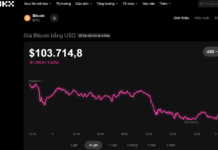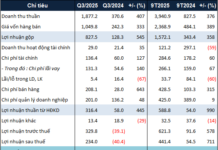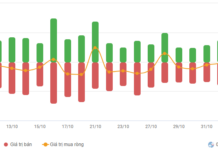Net Zero Commitment and the New Banking Landscape
Three years ago, at the 2021 COP26 conference, the Prime Minister committed to achieving net-zero greenhouse gas emissions by 2050. Immediately following COP26, the Prime Minister directed ministries and sectors to urgently research and develop programs and plans to implement Vietnam’s commitments. The National Steering Committee for the Implementation of Vietnam’s Commitments at COP26 was quickly established, with the Prime Minister as its head and the participation of leaders from various ministries and sectors. The Committee’s regulations and operating procedures were also issued.
Since then, a new landscape has emerged, challenging businesses to embrace sustainable development. To achieve the net-zero target, adopting ESG practices has become imperative for enterprises.
As the driving force and circulatory system of the economy, providing financial strength to the entire nation, the implementation of ESG in banking activities has been likened to an “unrefusable mandate” by Dr. Vo Tri Thanh, an economic expert.

The journey towards ESG implementation in the banking sector.
Recognizing the importance of ESG implementation in the financial and banking system, the State Bank of Vietnam (SBV) has proactively issued policies to promote the development of green banking, green credit, and sustainable development.
The SBV has also implemented a range of synchronous solutions, including flexible and synchronized management of monetary and credit policy tools, developing orientations for green banking and green credit, formulating the banking sector’s action plan to implement the National Green Growth Strategy, and issuing guidelines for green credit and ESG practices linked to environmental protection goals.
Pioneers in the Green Transformation
With the new and open mechanisms provided by state management agencies, credit institutions have quickly transformed themselves, proactively cooperating and accessing green capital and technical support from international financial organizations.
Currently, an increasing number of banks in Vietnam are applying ESG practices in their operations to contribute to the common message of promoting sustainable development.
The story of Military Bank (MB) is a typical example. In 2023, amid the green transformation wave, MB made a well-founded commitment to implementing an ESG strategy, following international measurement standards. This is considered the premise for sustainable development projects and the proclamation of a new “green” MB in the next phase of development.
From volunteering activities that spread social responsibility, MB ensures that every product it brings to the market bears a “green” imprint. MB focuses on providing finance for large-scale renewable energy projects, supporting lending and encouraging energy-saving consumption behaviors. In customer orientation, MB directly advises clients to use services with green elements.
Even in internal operations, digitization has prevailed, with paper usage approaching zero. For customers, MB has digitized up to 90% of products integrated into the MBBank App ecosystem for individual customers and BIZ MBBank for business customers, along with lifetime free policies. This approach helps minimize paper usage and maximizes the use of technology to reduce costs, time, and effort for both customers and the bank’s human resources.
As one of the largest private banks, TPBank is also a pioneer in implementing ESG standards. Accordingly, TPBank continues to strengthen measures to reduce negative environmental impacts, such as developing green credit. The “Purple Bank” focuses on lending to projects in sustainable agriculture, transportation, green construction and real estate, renewable and clean energy, and sustainable water and waste management. Additionally, TPBank promotes the use of digital technology by developing electronic banking and digital payment services, reducing paper resource consumption. TPBank was one of the first banks to successfully implement a digitization strategy over a decade ago.
Regarding the social aspect of ESG practices, TPBank supports the community by facilitating trade transactions involving women and actively promoting gender equality in finance in Vietnam. The bank also organizes charitable programs, such as building schools, providing scholarships for underprivileged students, and supporting healthcare in challenging areas.
TPBank affirms that practicing and integrating ESG factors not only benefits the environment and society but also enhances operational efficiency and sustainable development in the future.
Looking at these leading banks in the journey of ESG implementation, it is evident that the green transformation of the banking sector has been robust in recent years.
PRIVATE 100 – Top Private Enterprises with the Largest Budget Contributions in Vietnam is a list compiled by CafeF from publicly available sources or verifiable data. It reflects the actual budget contributions of enterprises, including taxes, fees, and other obligatory payments. Enterprises with budget contributions of VND 100 billion or more in the latest fiscal year are eligible for inclusion in the list. Some notable enterprises in the 2024 list, reflecting the contributions made in the 2023 fiscal year, include ACB, DOJI, HDBank, LPBank, Masan Group, MoMo, OCB, PNJ, SHB, SSI, Techcombank, TPBank, Hoa Phat Group, Tan A Dai Thanh, Tasco, Vingroup, VNG, VPBank, VIB, Vietbank, and VPS (listed in alphabetical order)
Capital Raising for Sustainable Growth
The trend of greening the economy is becoming increasingly popular worldwide, and Vietnam is no exception. As a result, the demand for green credit is also growing, aiming to promote the transition to a green economy and sustainable development. However, the domestic source of green credit is still limited, necessitating the need to expand the funding for this sector.










































